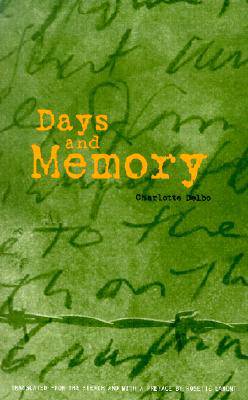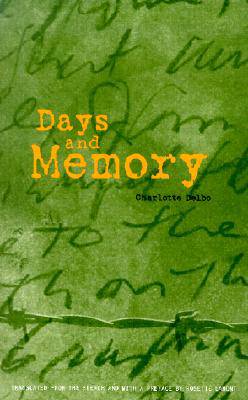
- Retrait gratuit dans votre magasin Club
- 7.000.000 titres dans notre catalogue
- Payer en toute sécurité
- Toujours un magasin près de chez vous
- Retrait gratuit dans votre magasin Club
- 7.000.0000 titres dans notre catalogue
- Payer en toute sécurité
- Toujours un magasin près de chez vous
Description
In Auschwitz, memory meant life: remembering the humanity extinguished by the death camps and hoping to survive to tell what had been endured. Charlotte Delbo, a non-Jew sent to Auschwitz for being a member of the French resistance movement, recalls the poems, vignettes, and meditations that fed her companions' spirits, interweaving her experiences with the sufferings of others and depicting dignity and decency in the face of inhumanity. This definitive translation is by Delbo's close friend, the author and theater critic Rosette Lamont, an expert on the works of Ionesco and Beckett. Lamont wrote that Delbo was, like Beckett, "a minimalist of infinite pain, a voice of conscience."
Spécifications
Parties prenantes
- Auteur(s) :
- Traducteur(s):
- Editeur:
Contenu
- Nombre de pages :
- 122
- Langue:
- Anglais
Caractéristiques
- EAN:
- 9780810160903
- Date de parution :
- 14-11-01
- Format:
- Livre broché
- Format numérique:
- Trade paperback (VS)
- Dimensions :
- 142 mm x 215 mm
- Poids :
- 181 g

Les avis
Nous publions uniquement les avis qui respectent les conditions requises. Consultez nos conditions pour les avis.






